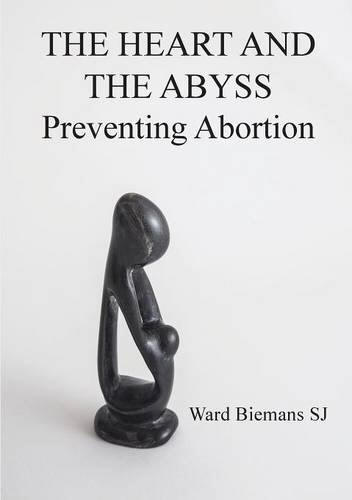Catholic Medical Quarterly Volume 66(4) Nov 2016
Book Review
The Heart and the Abyss: Preventing Abortion
Ward Biemans SJ.
Connor Court Publishing PTY Ltd (13 Feb 2016)
ISBN 978-1-925138-96-2
 In
the sixties with the passing of the 1967 Abortion Act I was a medical
student. The main proabortion argument centred around the loss of life due
to septic abortions at the hands of back street mavericks. Opponents
argued that, once the flood gates were opened, the deluge would begin.
Forty nine years have passed and with it information has emerged from
clinical practice. It is a good time to look at what the changes have
achieved.
In
the sixties with the passing of the 1967 Abortion Act I was a medical
student. The main proabortion argument centred around the loss of life due
to septic abortions at the hands of back street mavericks. Opponents
argued that, once the flood gates were opened, the deluge would begin.
Forty nine years have passed and with it information has emerged from
clinical practice. It is a good time to look at what the changes have
achieved.
Hence came the arrival of this volume at the CMA office. I read more with curiosity than anything else but was quickly enthralled. Ward Biemans has done what we all dreamt of doing but never succeeded in achieving. He has taken a subject, analysed every aspect and laid down a comprehensive factual summary for all to draw their own conclusions. His work is a tribute to academia. It deals with the situation in Holland and the UK.
He examines abortion from all angles, researches statistics, attitudes, history and legal aspects in both chosen countries. He traces theological and philosophical ideas and produces a demographic analysis from medical and psychological consequences through to moral and ethical values. He gives a historical development of Catholic doctrine and examines the outcomes of legislation. When he writes he attends to the facts. With a forensic inspection he concentrates on the facts and just the facts, and, with that, makes the assumption that attention to the Truth will set us free. There is no emphatic opinion, no evangelisation, no emotional harangue.
The effect is impressive because facts speak loudly for themselves. To maintain that balanced and measured approach is in itself a triumph and may I say written in a readable style typical of Jesuit tradition. His suggestions for a solution to the problems are measured, practical and intelligent.
The content of this book is enormous, packed with statistics, rich in research findings, and cleverly approached from all angles; each statement being precisely analysed and criticised from the point of view of methodology and conclusion. It is sensitive to all sides, non judgemental and in the style of Pope Francis emphasises the need for forgiveness and resolution towards a future. Most interesting is his historical analysis of the development of ethics.
As a treasure chest of information it is difficult to see how it could be improved and it should be on all library shelves for study by all those who wish to know proven facts not influenced by opinion. I cannot praise the method or the presentation enough and it led me to immediately look out for more writings by the author. Have no doubts about this book, do what I did, just go out and buy another copy. Despite its academic approach it is essentially a good read.
The facts contained therein are nevertheless quite horrifying. Nearly 9 million abortions have been performed under the UK Act not allowing for the numerous unreported cases. It was an Act passed on the grounds of deaths from septic abortions of which there were 30 to 50 per year. Biemans sticks to the facts. Reasons have shifted from medical imperative to social convenience and a lack of any real regulation. The conscience clause is a thing of the past, a forlorn promise never to be exercised. Gynaecologists now vacillate between delivery rooms where they struggle to maintain life in pre-term babies, and surgical suites where they terminate viable foetuses for often spurious reasons of convenience. All this was predictable when the Act was passed, when the flood gates were opened. It may invoke the attitude that I told you so.
Notwithstanding any of this Biemans has produced a wonderfully broad based study to be read and enjoyed by all. It is a reference for all serious students of abortion and should grace the shelves of all libraries. I sincerely hope there will be more writings like this on other subjects because they enrich, inform and open a debate based on persuasive but unemotional fact.
Reviewed by Dr Anthony John Warren. BSc., MBBS., MRCPsych.
